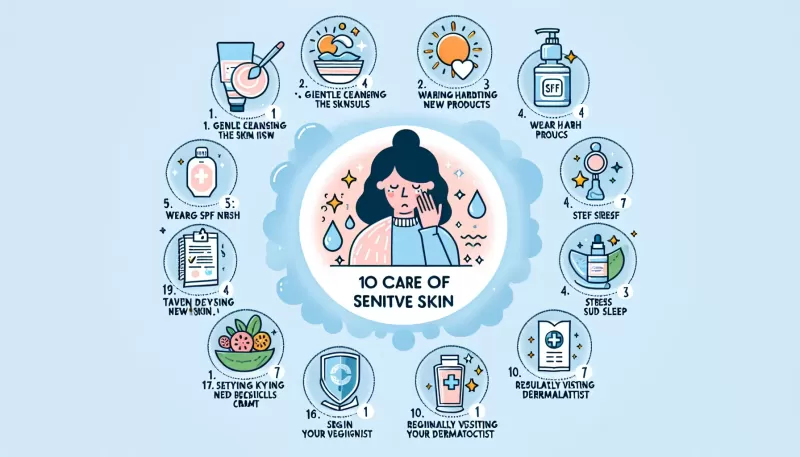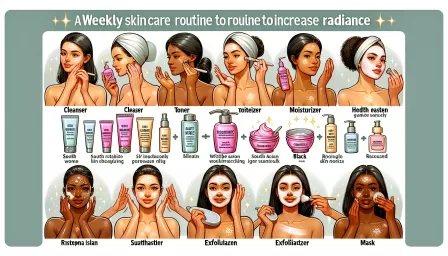Top 10 Sensitive Skin Care Routine Tips You Need to Try Today

Discover the best sensitive skin care routine tips tailored to soothe, protect, and revitalize your skin. Explore expert advice and simple changes for a happier, healthier complexion.
Navigating the world of skincare can be a challenge, especially for those with sensitive skin. Sensitive skin can react to a variety of factors, including certain ingredients in skincare products, environmental elements, and even stress. Therefore, it's essential to adopt a sensitive skin care routine that not only addresses these concerns but also enhances the skin's natural barrier. This article outlines ten foundational tips to help you build a routine that nurtures and defends your sensitive skin.
Understand Your Skin
Understanding your skin's specific needs is the first step in creating an effective sensitive skin care routine. Sensitive skin can manifest in various ways, including redness, itching, dry patches, or acne. Knowing which issues you're facing will guide you in selecting appropriate products and treatments.
Choose Gentle Skincare Products
For those with sensitive skin, choosing the right skincare products is paramount. Look for formulations specifically designed for sensitive skin, which are usually free from potential irritants like parabens, sulfates, and fragrances. These gentle products will help prevent adverse reactions and soothe the skin.
Maintain a Simple Routine
A complex skincare routine can overwhelm sensitive skin, leading to irritation. Instead, focus on a few key steps: cleansing, moisturizing, and sun protection. This simplicity helps your skin maintain balance without the risk of irritation from too many products.
Opt for Skin Barrier-Repairing Ingredients
Ingredients that support the skin's barrier are essential in a sensitive skin care routine. Look for products containing ceramides, hyaluronic acid, and niacinamide. These ingredients help retain moisture, reduce inflammation, and strengthen the skin's natural defenses.
Be Cautious with Exfoliation
Exfoliation can help rejuvenate the skin by removing dead cells. However, for sensitive skin, it's crucial to proceed with caution. Choose gentle exfoliators, such as those with lactic acid, and limit the frequency of exfoliation to avoid irritation.
Prioritize Sun Protection
Protecting sensitive skin from the sun is non-negotiable. UV rays can exacerbate sensitivity and cause further damage. Use a broad-spectrum sunscreen with an SPF of 30 or higher every day, even on cloudy days, to shield your skin effectively.
Pay Attention to Environmental Factors
Environmental elements like wind, cold temperatures, and air pollution can aggravate sensitive skin. Protect your skin by wearing appropriate protective clothing and using products that create a barrier against these external stressors.
Implement a Patch Test Policy
Before integrating new products into your sensitive skin care routine, it's wise to perform a patch test. Apply a small amount of the product to an inconspicuous area and wait 24-48 hours to check for adverse reactions. This precaution minimizes the risk of a full-blown reaction on a larger skin area.
Stay Hydrated
Hydration plays a crucial role in maintaining the health of sensitive skin. Ensure you're drinking plenty of water throughout the day, and incorporate products that boost hydration levels in the skin, such as those containing hyaluronic acid.
Consult with a Dermatologist
If you're struggling to manage your sensitive skin, or if you're unsure about which products are right for you, consulting with a dermatologist can be invaluable. A professional can offer personalized advice and recommend treatments and products tailored to your specific skin needs.
In conclusion, creating a sensitive skin care routine requires consideration and care. By following these ten tips, you can help soothe and protect your skin, leading to a healthier, more comfortable complexion. Remember to listen to your skin, adapt your routine as necessary, and seek professional advice when needed.



























